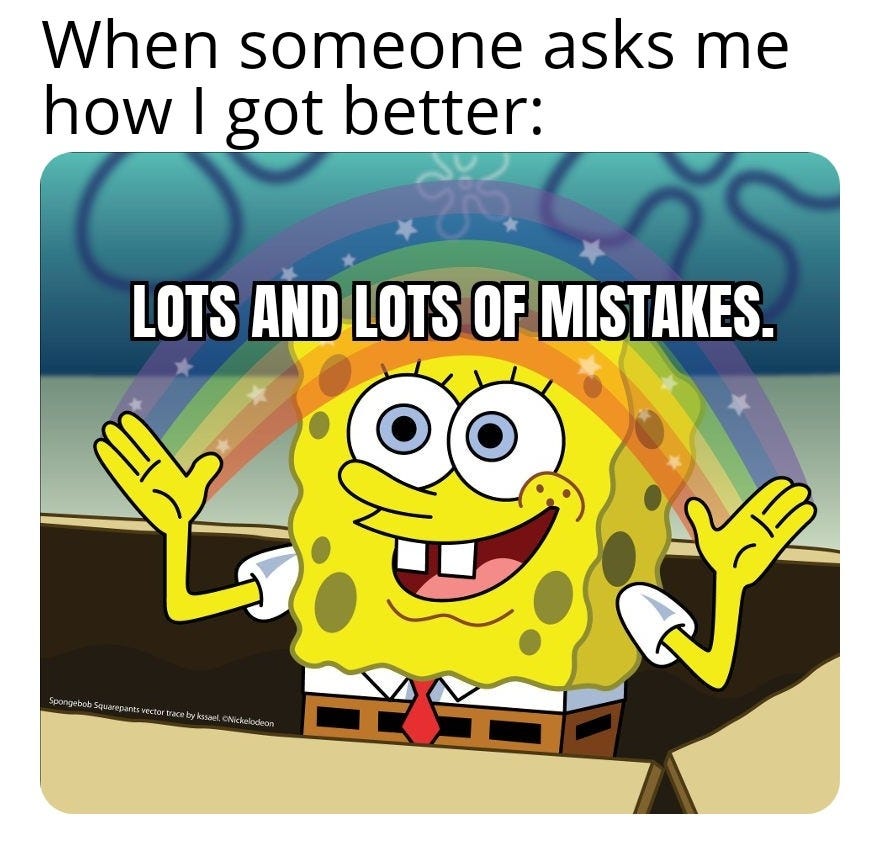Your first conversation
Breaking the barrier
Welcome, aspiring polyglot! By the time you finally feel comfortable using your target language, you will have had thousands of conversations. The depth of the conversations may vary, but the amount is pretty much a non-negotiable. Repetition is key and without having conversations repeatedly it will be difficult to recall the things you are learning. A mistake in front of another person is rarely a mistake that is made twice. For that reason, using your free will is paramount for successful language acquisition.
Using your free will
People often underestimate how much access they have to free will within their day to day life. In all likelihood, if you truly pay attention, your day is rife with opportunities to practice a new language. Part of the problem is that there is a little voice warning you of all the things that could possibly happen if you took a gamble on yourself. All you really have to do is make the choice, but you have to do it more than once.
Every time you have a new opportunity, that voice is going to butt in and tell you all of the terrible things that could possibly happen to you if you take the risk of speaking to that new person or reading that new book or watching that new show. Over time you will learn to drown it out, but at first it will be loud. For ways to overcome it, check out this article:
Flex that muscle
Welcome, aspiring polyglot! I was recently talking to someone about courage. We essentially agreed that courage is a muscle that must be flexed in order to remain active. This makes sense when thinking about it, but from a purely linguistic standpoint it is even more obvious. Even short bursts of courage when speaking a new language go a long way in bui…
Stacking your wins is going to be crucial the deeper you get into your language learning, but you can’t start stacking if you don’t start trying. Playing out conversations in your head is perfect for tempering any nerves you may be feeling as you begin the journey of rediscovering your free will. Of course, this means that you are guaranteed to make mistakes, so making your peace with that now is the best way forward. Just remember, the more time you spend making mistakes now, the less time you will spend making mistakes.
Leading with mistakes
Recently one of my students said that they prefer to open a conversation with a mistake. Where this might be off putting if it were a native speaker, it actually acts as the perfect ice breaker when meeting new people speaking a new language. First, it gets the fear of making the first mistake out of the way. Second, it is disarming which can be a perfect way of building a bond.
Think of it like this, one of the oldest psychological tricks for ingratiating yourself with your neighbors is to ask them for a favor, This tip comes directly from the hundred dollar bill: Benjamin Franklin. He pointed out that when you ask your neighbor for a favor, rather than offering to do them a favor, you automatically disarm them by giving them the upper hand. People like to be and feel useful.
Extrapolating this principle to language learning means when you make a mistake upon introducing yourself you let the person you are speaking to know you are new to the language without having to say those dreaded words, “I know a little bit”. If you take the opportunity to ask them to help you along the way and be patient while you form some sentences at the same time, you will be amazed by how kind and helpful people are.
Once they know what to expect, not only will they help you with finding words you need, they will begin to ignore minor errors. It will be proof positive that people care more about communication than perfection and you will be able to carry that lesson with you into each subsequent conversation. As you learn which errors are more acceptable and which aren’t you can focus entirely on addressing the things that matter most.
As far as minor errors go, one of the biggest that stops most people in their tracks is gendered words. These can feel intimidating, but over time you will realize that there are very few edge cases where using the correct gender is important. Even then the context is usually more than enough to overpower the article error. So yes, learn the le, la, el, los, les, las, der, die, das, but do not let the fear of using them incorrectly stop you from speaking.
Taking advantage of people’s kindness
I’ve said it before, but it bears repeating: people care more about communicating with you than whether or not you are speaking flawlessly. People respect those who put forth effort. This is especially true when it comes to doing something for the hypothetical benefit. As an American who speaks multiple languages, I have had the privilege to see how excited people get when they find out I can speak to them in their native language.
While it certainly depends on which language you are learning, in my experience almost everyone is willing to help someone who wants to be better. Much of the vitriol that Americans face while abroad comes from the fact that many do not even try to learn the local language. If you can be bothered to learn 500 words and some basic sentences you are already in the top 10% of American tourists; and this is not unique to Americans, though that may be the most common example.
Most importantly, you do not have to speak to participate in conversations. Asking open ended questions is the best way to make friends while also guaranteeing some solid audio comprehension practice. Since this will be live, however, rather than Googling for answers, ask the person in front of you. Chances are they will struggle through broken English to help you speak more effectively to them in their mother tongue.
Having traveled for a decade to various countries around the world, one thing I have learned is that people are going to try and prod you. At first this can be frustrating, but if you really think about it, anyone who does this to you is opening up for a chance at a deeper relationship. Think about it, do you really trash talk people you don’t like? I don’t. If I am making fun of you it is because I trust and like you enough to give you a hard time. This is true abroad as well.
It is crucial that you fight the urge to get defensive whenever something is said about you or your country, irrespective of what that country is. Personally, I have always found that having a depth of knowledge about the country in which I am a guest is invaluable in these moments. No one expects you to know more about their country than they do. Combined with the intentional mistakes used to open the conversation, a deep understanding of where you are is lethal.
Conclusion
Hundreds of millions, if not billions, of people around the world learn new languages every year. That means almost every single person you run into will have at least had classes where they were exposed to a new language. Anyone with that experience automatically understands how difficult it is to master a new language. If nothing else this fact makes people more understanding of your plight and therefore more likely to help you if they can.
Sometimes the things you are most afraid of end up being the things that propel you forward the most. Making mistakes is terrifying, but doing intentionally opens up a world of opportunities for you. The first time is disconcerting, but each subsequent time gets easier. It will be difficult, but you can do difficult things and be great. So get out and do some difficult things and become great.








